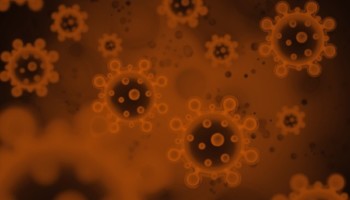 10 years after its first official publication, the legal framework on biobanks has entered into force at last. Each Belgian biobank will have to be declared at the Federal Agency for Medicines and Health Products (FAMHP) in order to operate. It also imposes binding content for agreements on the transfer of human biological material. These arrangements would be concluded between the biobanks, which have the exclusive right to store and provide these materials, and the recipients that would like to acquire and use the human material for scientific research purposes.
10 years after its first official publication, the legal framework on biobanks has entered into force at last. Each Belgian biobank will have to be declared at the Federal Agency for Medicines and Health Products (FAMHP) in order to operate. It also imposes binding content for agreements on the transfer of human biological material. These arrangements would be concluded between the biobanks, which have the exclusive right to store and provide these materials, and the recipients that would like to acquire and use the human material for scientific research purposes.
Biobanks are structures that obtain, treat, store and/or provide human biological material destined exclusively for scientific research purposes. Their activities relate to any kind of human biological material, including human tissues and cells, gametes, embryos, fetuses, and substances obtained from the former. As a general rule, human biological material collected within clinical trials does not have to be stored in a biobank.
The 1 November 2018 saw the entry into force of a 10-year old legal provision on biobanks in the Law of 19 December 2008 on Human Biological Material. During this decade long period of non-application, the content thereof had been regularly modified and extended. The Law is also complemented by detailed implementing rules included in the Royal Decree of 9 January 2018 on biobanks.
A first key requirement for biobanks is their compulsory declaration to the FAHMP. This declaration is a necessary precondition for the operation of a biobank. The declaration form contains a description of the goals and activities of the biobank. It also mentions whether the human substances acquired by the biobank can be identified and located at any stage of the process (‘traceability’). The positive advice of an ethics committee of a hospital has to be provided when declaring the biobank.
Biobanks will also need to report regularly throughout their existence. Each change to the content of the initial declaration has to be reported immediately to the FAHMP. This includes changes to e.g. the scope of scientific research or the type of human biological material. This reporting requirement is also necessary where the biobank ceases its activities. Biobanks will also need to draft a report on their activities on a two-yearly-basis to the ethical committee, which can afterwards decide to modify or revoke its initial positive advice if deemed necessary.
Each biobank will have to appoint a biobank manager within its premises. This person must be a licensed doctor or an apothecary, depending on the traceability of the human substances preserved in the biobank. Persons that may harvest human substances destined for a biobank have to be qualified as e.g. doctors, nursing women or apothecaries and must also prove that they have successfully passed a training program on clinical trials.
The biobank regulations further introduce detailed rules on agreements between biobanks and third parties. Each provision of human substances is subject to a written agreement. Such a contract should at least include the object of the corresponding scientific research, responsibilities on assuring the traceability of the human substances, as well as a description of the technical and organizational measures put in place in order to protect transferred personal data.
Other major novelties include rules on the traceability and encoding of human substances acquired by the biobank including rules on consent and processing of personal data, as well as the content of the data contained in the human substances register that each biobank needs to possess.
 10 years after its first official publication, the legal framework on biobanks has entered into force at last. Each Belgian biobank will have to be declared at the Federal Agency for Medicines and Health Products (FAMHP) in order to operate. It also imposes binding content for agreements on the transfer of human biological material. These arrangements would be concluded between the biobanks, which have the exclusive right to store and provide these materials, and the recipients that would like to acquire and use the human material for scientific research purposes.
10 years after its first official publication, the legal framework on biobanks has entered into force at last. Each Belgian biobank will have to be declared at the Federal Agency for Medicines and Health Products (FAMHP) in order to operate. It also imposes binding content for agreements on the transfer of human biological material. These arrangements would be concluded between the biobanks, which have the exclusive right to store and provide these materials, and the recipients that would like to acquire and use the human material for scientific research purposes.


